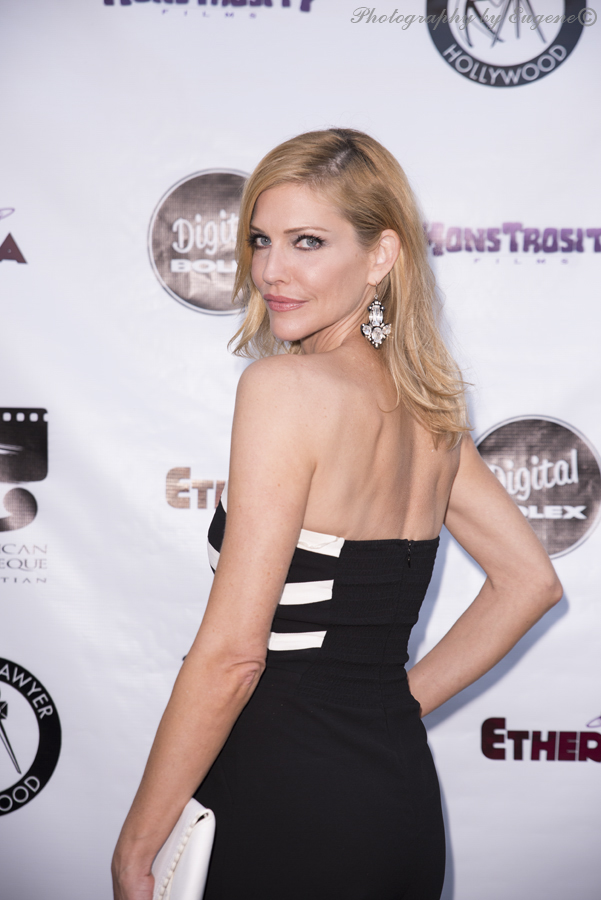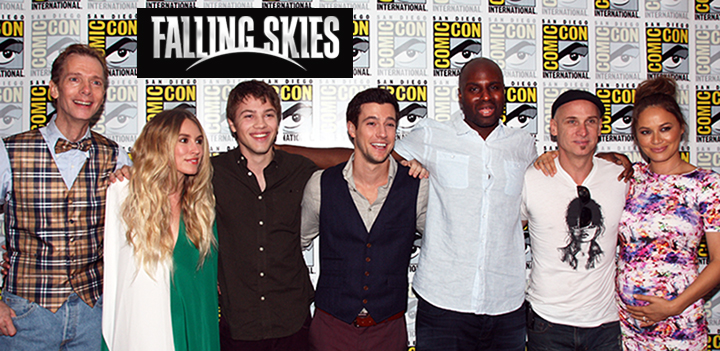Whedonopolis: When reading most novelizations of a show or a movie, there is nothing new. No thoughts going on behind the scenes just a regurgitation of what was viewed. In “The Xander Years,” we could hear thoughts behind the action. You did the same thing in “Blackout” with Spike, digging deeper than the story we heard on the show yet staying true to canon, which is a word that I know you don’t like.
Keith R.A. DeCandido: (laughs) No, I have no problem with the word. I just have a problem with the way it’s used, or misused, more to the point.
W: You’ve written media tie-in novels for numerous TV shows. Setting aside the Star Trek series (which we know is in your DNA), are you or were you a regular viewer of each series, or can you write without being a fan? And if you’re not a fan of a series, how do you get into each ‘Verse?
KRAD: OK, that’s like twelve different questions there. First of all, I want to defend people who write novelizations where it seems like they don’t put anything new in it: A lot of the time that’s out of the writer’s control. There are several instances that I have been lucky enough not to have to encounter that, but several of my colleagues have, where the movie studio says, "No, you will not add anything” and “No, you can’t do that because that’s not in the script”, missing the fact that most movies only have about a short story worth of story in it, and in order to get a novel out of it you need to add to it. Sometimes, though, the studio won’t let you do that, and the studio owns it, so they can do whatever they want. That is a distressingly common occurrence when writing novelizations; you’re completely at the whim of what the studio will let you do. In fact, I even faced that with Serenity. I specifically asked if there was any way I could dig into the background of Shepherd Book, and I was very specifically told ‘No’ which is why there are no scenes in the Serenity novelization from Book’s perspective. Even when I dramatized the attack on Haven, I did it from the POV of someone else, specifically because I wasn’t allowed to do that.
As far as the stuff I’ve written, whether or not I was a fan of it, it varies from project to project. For example, Farscape, I was a huge fan of. When the novel license came up for that I was like Donkey in Shrek, jumping up and down in the back, saying “Pick me, pick me!” I really wanted to do that one. I was a huge Farscape fan when the show was on the air and when that novel license came up a made a complete ass of myself trying to get that. For that matter I was like that with the Serenity novelization too. I was politicking aggressively for that. Luckily, the license went to a publisher who knew me in Pocket Books, where I’d done most of my work, so that worked out nicely. In other cases, I had been approached, and it was either something I wasn’t familiar with or wasn’t a big fan of. I’m a research junkie; even if it’s something I’m familiar with, I’m going to sit down and do the research to make sure I get it right. That’s what happened, for example, with Andromeda. The same publisher who did the Farscape books also did the Andromeda books and, on the strength of the Andromeda books, the editor of the Farscape books said, “Hey, Keith! You did a great job on the Farscape books. How would you like to write an Andromeda book?” I, of course, said yes, because when editors come to you with paying work, you say yes. So I’d seen a couple of episodes of Andromeda; I wasn’t all that familiar with it, so I sat down and basically mainlined the series for two weeks -it was about a season and a half of material at that point- and I grew to appreciate the show just from doing that.
In other instances… I’ve done a couple of video game novels. In one case I wasn’t familiar with the video game by virtue of the fact that it was still being written at the time I wrote the book, which was an interesting challenge. It was a book that just came out in ’07, called Tiberian Wars, a Command and Conquer book. I was writing that book at the same time that the Tiberian Wars game that the book was tying into was also being developed, which had its own set of problems, just because they were changing things on me. There was an entire subplot that I had to drop because it was based on an early draft of the script that they’d changed, and I had no way of knowing that until… you know. So it was an interesting experience.
But generally, if I’m not already a fan of something, I usually become one by the time I start doing the research. I never go into anything without doing like what I did with Andromeda, mainlining the thing. I was already a fan of Supernatural when I was approached to do a Supernatural book, but I still sat down with the S1 DVDs before I wrote the book, and just watched every single damn episode, and still managed to screw up and get Dean’s eye color wrong. It looked blue to me. His eyes aren’t blue, and I said he had blue eyes, and I’ve been ripped for it by the fans who have been very unhesitant…
W: They will shoot you for that, you know…
KRAD: …as well they should. I screwed that up. As a result when I wrote a CSI: New York book I made damn sure I got Eddie Cahill’s eye color right. His eyes really are blue!
W: Regarding the Buffy series, how were you contacted to be part of the anthology “Watcher’s Guide Volume 1,” and when you wrote the episode reviews, did you have to rewatch the episodes or, like us, did you know them by heart?
KRAD: Because I was writing a reference source, I made sure to watch each of the episodes, yes, even though I did know them by heart, because one does not trust one’s memory when one is writing what is supposed to be a definitive reference guide. So, I am the child of librarians; I understand the importance of research and citing your sources. The entertaining part of that actually was that the last four episodes of the season hadn’t actually aired when I wrote those episode descriptions. I was working entirely on the scripts for– it was "Go Fish”, "I Only have Eyes for You" and "Becoming Parts 1 and 2", that hadn’t aired. So I got to see the scripts for that before the episodes aired, which was kind of cool. The hilarious part of that was they actually, the way I did the episode guides were breaking them down into categories, which was a format I stole from Martin Day, Keith Topping and Paul Cornell, who had done that for several of their guides to various TV shows. They did one for The X-Files, and for Doctor Who and a bunch of others. I thought that was more interesting than just doing a straight plot description, doing little categories, and I did a little quote of the episode. The quote of the episode I picked for "Becoming Part 1" was cut from the episode… (laughs) which was kind of frustrating. By the time production of the book went on, we were able to make changes, so that got moved to the “cut from the episode” part and I had to pick a different quote, which, I think, wound up being Spike’s line about "It’s a rock.”
W: "It’s a big rock. I can’t wait to tell my friends. They don’t have a rock this big."
KRAD: Yes, that one! That’s right.
W: Yeah, don’t mention Spike, because I just spout Spike!
KRAD: (laughing) So noted. So I know what you’re going to be do
ing this weekend! Anyway… As far as how I got involved with "The Watchers Guide," Chris Golden and Nancy Holder were doing three different Buffy projects simultaneously. They were writing the first book of a trilogy, a stand-alone book and they were doing "The Watchers Guide," all at the same time. "The Watchers Guide" was the one where they could easily ask for help, because it was modular. They could carve out parts of it and give it to someone else, and that someone else was me. So they asked me to give them a hand with that. I actually did a lot more material than showed up in the book. In addition to the character profiles and the episode guides -that was my contribution that was in the book- I did about six or seven other things. They were supposed to do about 300 pages worth of material. Chris, Nancy and I gave them 400 pages worth of material, so 100 pages had to be cut. So a lot of the stuff I did, I got paid for it, but it didn’t actually get used.
W: If you got paid for it, who cares?
KRAD: Exactly! So that’s how I got involved with that and that’s also what led to me doing “The Xander Years” volume as well.
W: In those days Christopher Golden and Nancy Holden, whom you just mentioned, were writing their Buffy novels together. How did you make the step from partnering on the anthology to solo writing of the Buffy novel?
KRAD: Chris and Nancy were the one’s who brought me in to "The Watchers Guide”. I’d worked with both of them. I like to joke that Chris owes his career to me– he doesn’t really, but I joke about it anyway because I was the one who hired him to write a trilogy of X-Men novels, which was a set of books that were very high profile him, and was part of how he was able to do other tie in work since, especially with the Buffy books. Since then, he’s gone on to do regular stuff on his own that’s entirely of its own merits. But I like to take credit for his career anyway, just because it annoys him, and Chris is a good friend of mine, and if you can’t annoy your good friends, who can you annoy? And I also worked with Nancy on a couple of projects as well, so we all knew each other, and they knew I was a fan of the show.
W: How did you go from that to writing your solo novel?
KRAD: I also had to work with the editor directly. Unlike Nancy, I also live in New York City, which is where Pocket’s offices are. I was dealing directly with Lisa Clancy, who was the editor at the time. And from talking to her, I was able to win the pitch. She invited me to pitch a Xander novelization, because they wanted it. They’d already done the Angel— novelizations of Angel-focused episodes, and they wanted then to move on to other characters. Xander was an obvious choice, and she gave me the shot at pitching and it all worked out fine. And then I sent her about twelve other pitches, none of which she liked. Which is why there is a gap of seven years between my first Buffy novel and my second Buffy novel. Actually, amusingly, “The Deathless," which came out this year, was one of the pitches that I had sent to Lisa Clancy, that she didn’t like. The editor currently doing the Buffy books liked it a lot more than Lisa did, so…
W: In the old days of the Buffy series, writers spoke of how they stayed away from lurking on fan sites and forums, out of concern that they would take an idea without meaning to. As you were already a fan, did you lurk or were you part of the forum?
KRAD: I wasn’t as much, simply for time reasons, as much as anything. There’s a limit as to how much time you can spend on some of the forums. I do participate in a great deal of online discussion. Usually what I do is, I try to stick with forums that are specifically geared toward the tie-in fiction. Because a) that’s work related, so I get to justify the time. b) those forums have very strict guidelines about not posting story ideas. For the very reason, you know, to avoid that sort of problem. It’s a problem, anyway. There was an episode of Babylon 5 that had to be delayed a year, because someone had mentioned a story idea that was too similar to something that was already in development, and they had to work through a whole legal wrangle. It’s ridiculous, because ideas are not a commodity worth stealing. Nobody’s going to steal your ideas, because the idea doesn’t matter. I mean, it’s the starting point; it’s the execution that matters. And it’s the actual execution of the idea that is the writer’s own unique thing. However, people think that people steal their ideas, and some of those people hire lawyers. So, for that reason, people have to be careful. Generally I avoid that by avoiding it. I was a huge fan of the show. I didn’t go to the forums partly just because it was a time that I couldn’t afford.
W: As “Xander” was a novelization, were you able to use forum discussions you were involved in to go deeper into the storylines?
KRAD: Not so much. I didn’t there, but I had plenty of thoughts of my own on the subject. (laughs) I was on a couple of mailing lists that were Buffy related.
W: Ah, the good old days of the mailing lists!
KRAD: Yes. And it’s possible that some of those discussions, you know, they had an influence on certain things. I can’t remember any specifics now.
W: In “The Xander Years” you wrote from the point of view of different characters.
KRAD: Yes!
W: How did you get so deep into each character’s mind? Did you see a bit of each of them in you or anyone you know?
KRAD: Well, Xander, certainly! I was Xander in high school; that was one of the reasons I gravitated toward that character, but, in general, I always try– particularly when I’m doing something based on a TV show, or a movie, or a comic book, for that matter, the one thing that you can’t do onscreen is internal point of view, and that’s the one thing prose brings to the table that the original form can’t do. So, it’s very important to me when I’m writing, particularly when I’m writing a tie-in fiction book, in general when I’m writing fiction is to really dig into the character’s head, to have every scene be filtered through the point of view of that particular character. So, that’s just my MO when I’m writing: To filter everything through a particular viewpoint. I particularly had fun jumping from Willow’s point of view to Cordelia’s point of view in one chapter of that. You can strip your gears, you know, strip your threads changing gears that fast. Because, you know, completely different head spaces between the two of them, particularly at that stage (this was second season.) If you do it later it would be a little closer because Cordelia matured and Willow got less uptight. But yeah, I mean, S2 Cordelia and S2 Willow are like polar opposites.
W: You’ve said you had fun writing Spike in "The Xander Years…"
KRAD: Oh, yes! Oh, yes!
W: Did you pitch “Blackout” to S&S, or were you contacted and given the idea?
KRAD: Actually, it was very convoluted how this happened. I’d done “The Xander Years”, and then I’d pitched a bunch of other things. Lisa didn’t like any of them, and I had other work, and we moved on. And seven years later, I was actually pitching Alias novels, and the person who edited the Alias novels at Pocket was the same guy who was in charge of the Buffy books at Simon Spotlight. So I pitched an Alias book, and that wound up not happening for a variety of reasons, but while I was doing that, the editor also mentioned that he was also looking
for Buffy stuff. And I threw the idea—cos, honestly, “Blackout” was a book I’d been wanting to write since "Fool for Love" aired in 2000. I was completely captivated by Nikki Wood, which was a neat trick considering she didn’t have any dialog in the episode. Part of it was just the appeal of her being in New York during the ‘70’s, which is where and when I grew up. ’77, in particular, was a very turbulent year. New York in the 70’s, in general, was a great place for a Slayer to function because the city was just in a deep hole at that point. So I pitched that to them, and they were also at the same time developing Robert Joseph Levy’s "Go Ask Malice.” They were generally looking for things that were a little more off the beaten track. They were trying to get a mix of standard Buffy adventures that were in Sunnydale, during the run of the show, doing pretty prototypical Buffy-type episodes mixed in with stuff that was a little more off the beaten track, and both "Go Ask Malice" and "Blackout" fit that perfectly. "Go Ask Malice" focused on Faith, and mine focused on Nikki. Although, it was actually at their request that I included the prologue and epilogue with Buffy and Spike, because if it says Buffy the Vampire Slayer on the cover of the book, Buffy should show up somewhere.
W: As a rule, yes.
KRAD: I would have been perfectly happy to just have the whole thing take place in the 70’s, but the framing sequence actually helped, plus it enabled me to do the epilogue with Robin applying for the job at Sunnydale High as principal. Which I was glad I got to work in there. I thought that was a good way to end it.
W: Over the years readers have come to expect the Spike character to be written as a bad guy, black and white, no shades of gray. Certain authors have stated that they see him as such, and they’ve not changed their view of him even in books they wrote set in S5 or S6. Among Spike fans, "Blackout" was an exception to how Spike was normally written, showing Spike instead as how we expected him to be in 1977, both the good and the bad. Did you do that because you were sticking to his back-story from the show, or do you really see the character as being gray?
KRAD: I see the character as being complicated, or gray, however you want to put it. Even when he was a pure bad guy, as he was in S2, he had more nuance to him. I think that was why the character was so appealing and why he stuck around. He was portrayed consistently as being more thoughtful and, to be blunt, brighter than most of the other vampires. Most of the vampires we saw on Buffy the Vampire Slayer were not really mentally equipped to be much more than thugs, and Spike was very consciously written as being better than that. So I was pretty much taking my cue from what was on screen. The back-story, as it developed for him, made a certain amount of sense. He was somebody that, you know, when he was human, he was somebody who was more thoughtful and intelligent, if a bit of a wanker. But, there was always that level of complexity with him; to some extent he wasn’t just a moustache-twirling bad guy, he was also impulsive and impatient. One of the hallmarks of his early days was, "I was gonna do this, but I got bored.” I just loved that, he had this whole plan “and I got bored!” I even tried to make sure that that line showed up somewhere in "Blackout.” I was also consciously writing Spike in the framing sequence differently from the way I was writing him in the 70’s, because he was a different person at that point, and so I was just trying to stay true to the character as we saw him, and as we saw him develop. The Spike of ‘77 was much closer to the S2 version of him, whereas in S6, he’d mellowed, for lack of a better word, and not entirely by choice. A lot of the changes he went through over the course of the show itself had to do with the chip in his head, as you know. A lovely example of behavior modification! (laughs all around)
W: This question is about "The Deathless.” After writing two novels that fleshed out existing storylines and delved deeper into the character thoughts, what made you go back to S3 and write a story that was more young-adult than adult? That was more from the outside looking in than from the inside going out?
KRAD: That’s an interesting way of looking at it. What happened was oddly, “The Deathless" was something that I’d originally pitched back in 1999, after I’d done “The Xander Years.” At the time, the original Buffy novels as well as the novelizations were much, much more restrictive. At the time, basically what they wanted were third season adventures. The original pitch for "The Deathless" didn’t have Faith in it at all. The mandate at that particular juncture was, they were going to do generic third season stories. Because Faith and the Mayor were part of on going storylines that were developing on the show as the books were being written, they were to be avoided; they could be mentioned, and Angel’s role was to be as minimal as possible, again because of ongoing storylines. So they were to be basic Buffy and the Scooby Gang and Giles fighting some kind of monster in senior year of high school at Sunnydale High. It was under those circumstances that I came up with "The Deathless" in the first place. Lisa didn’t like it, it sat moldering on my hard drive for seven years, and then, after I’d done "Blackout", Simon & Schuster renewed their license late for 2006– for 2007, rather, and because of that they needed a book in a hurry. The editor came to me and said, “Do you have any Buffy novels you can throw at us?” And so I threw two at them: One was this dusty old pitch that was sitting on my hard drive since 1999, which I gussied up a bit, and one other one that I pitched at them, which wound up not happening, so they went for that. That really was the impetus for that; that was the pitch I had. It was something I’d wanted to do since a time when that was all I could do. And it was fun to write, especially because I was no longer writing it under the restrictions that there were while the show was on the air. I was able to include Faith, which made a huge difference, actually; I think having her in the book made it much more interesting, having the two Slayer dynamic. And the absolute most fun part of the whole thing, besides all the Russian folklore that I incorporated, was writing Principal Snyder. Principal Snyder is fun to write.
W: It didn’t have anything to do with the fact that it was the guy who was on Star Trek though….
KRAD: No. He was a good character!
W: I know, I know, I know! Principal Snyder is awesome! (laughs)
KRAD: Armin (Shimerman) is a phenomenal actor. I’ve loved him in everything he’s done, and, honestly, Quark and Snyder don’t have that much in common as characters except for the fact that they’re both short because of the fact that they are both being played by Armin. But, you know, I mean, Snyder is just vicious.
W: Snyder is horrible!
KRAD: And like I said, so much fun to write! For a lot of the same reasons why Spike is fun to write, actually. is because…
W: The snark!
KRAD: Oh, yeah! And a complete lack of caring as to whether or not–a complete lack of caring of being polite.
W: There you go, that’s the stuff! How in-deep did you research the Russian fables of Baba Yaga, Koschei and Bulat the Brave, and how much came from your fertile imagination?
KRAD: Actually, pretty much everything there came out of Russian folklore. At the time I originally pitched &q
uot;The Deathless," I had just collaborated on short story that involved Baba Yaga. It was published in 1998 in an anthology called “Did You Say Chicks?,” edited by Esther Friesner; Marina Frants co-wrote that story. Marina is Russian; she knew all the legends just from growing up in Russia. It was a humor anthology ,and she basically brought me in to bring the funny. So, we did that together, and, as a result of doing that story I had all this Russian folklore in my head! It was with that fresh in my mind that I originally pitched "The Deathless" way back when, and then I had to basically dredge it all back up. (laughs) But, like, there’s a flashback in "The Deathless" that’s based on two or three different pieces of Russian folklore that I adapted, for my own purposes; that came completely out of there. The modern stuff was, obviously, all mine, but it was all extrapolated from those folk legends. The one complaint I have about Buffy, and Angel also, is that there was a really good opportunity there to play with existing folklore and, for the most part, they declined to do so. There are a few exceptions; they did Dracula, and in "Gingerbread," they used Hansel and Gretel story. But aside from that, they mostly just made up their own folklore, for the most part, which is fine, and it’s a perfectly valid choice. I just thought that was a missed opportunity to use the existing folklore of various cultures, so one of the things that motivated me to do "The Deathless" was to bring the Russian folklore into it, which I thought was a good fit, especially since Baba Yaga can control dead things, which means she can control vampires.
W: Many of the other Buffy and Angel authors have proclaimed their disappointment in both franchises being dropped by the publishing houses. With Buffy novels no longer being published, are there any storylines you wish you could have done?
KRAD: Yes, although I do know that there is at least one other publisher who is interested in picking up the Buffy license, now that Simon and Schuster has dropped it. I don’t know if that is going to happen or not, and I can’t say who the publisher is. But the second story that I had pitched, in addition to "The Deathless," is one I’d still like to do, and there are a couple of other stories rummaging around my head. But the other one that I had pitched was a much bigger book. "The Deathless" was pretty much your basic standard Buffy story, and because the book needed to be done quickly, that was the one they went for.
W: Can you tell us the characters?
KRAD: I’d rather not. I don’t like to talk about things that aren’t under contract. Suffice it to say, it was a much bigger more epic story. I still have hope that, if this other publisher does pick up the rights, or if the comic books are still being published. Right now, they’re still focused completely on the season 8 stuff.
W: And Angel season 6 is starting…
KRAD: On IDW, yeah. If the comics license runs beyond doing that, which, for the moment, it’s what they’re focused on; if it runs beyond the point where they’ll look at stories from other people, then there might be a venue for it also. So yes, there are definitely Buffy stories I want to tell. By the same token, I’m not surprised– As far as the book licenses coming to an end, it is very, very rare for a TV tie-in line to survive the death of the TV show. The fact that Buffy lasted as long as it did is a testament to the fan base, because it kept going for several years after the show went off the air. What happened with Angel is more typical. The Angel book line pretty much died with the show, and oddly, because Angel had a slightly higher viewership than Buffy did. The Angel books never did as well as the Buffy books, so there wan’t as much of a call for Angel novels for whatever reason. But, you know, like I said, having a tie-in survive the end of the franchise is exceedingly rare.
W: We’re getting to the section that has become the new thing that has eaten my brain because David Tennant owns me. BBC has been pushing the Doctor Who novels at the end of their episodes and on the official website, whereas FOX never did. Although FOX knows that Buffy is a cash cow for them, they seem not to be motivated to continue the franchise in novel form. What do you think we viewers can do to entice FOX to find another publishing house?
KRAD: FOX is trying to find another publishing house. The reason why the publishing stopped with Simon & Schuster was because S&S felt it wasn’t doing well enough to justify the licensing fee. The books haven’t been selling as well, which is a natural result– as you get farther removed from the end of the show, there is going to be a drop off. That’s inevitable. From S&S’s point of view, it dropped off too much for them to feel it was worth it. Like I said, there’s another publisher interested, so FOX has not given up on Buffy books at all. The success of the comic book, I think, will help also.
As far as the BBC goes, one of the reasons why the BBC pushes Doctor Who books at the end of Doctor Who is because the Doctor Who books are published by BBC books. It’s all one big corporate family! It’s also a much smaller and more concentrated audience; the British audience is much smaller and much more contained. One of the reasons why you don’t see tie-in lines on American shows advertised as much is because the tie in lines are generally beneath the radar of Hollywood, because there’s not enough money involved. Having said that, both Farscape and Andromeda mentioned the tie in books. In fact, I remember when my Andromeda book came out, there were little ads at the end of each episode of Andromeda mentioning that there was a novel out, which was great. So, it occasionally happens, but like I said in BBC’s case they were directly motivated because it’s their book line, their publishing.
KRAD:
Oh, God no!W: …to have published Doctor Who stories?
KRAD: I was the first! (laughs) Several more followed in my footsteps and I’m actually responsible for getting a few more to. I’m editing a Doctor Who anthology that will be out next spring, called "The Quality of Leadership.” There’s tons of native-born Americans in that one! And I have to qualify it with native-born American citizens, because John Peel is a naturalized American citizen, but he was born in London. But no, plenty of Americans have written Doctor Who fiction in the last 11 years, and plenty more will, in particular because of the “Big Finish” anthologies, and lots of American have contributed to those, including me. I just have one anthology called "Destination Prague” that I’ve got a story in…
W: Which is what the next question is about!
KRAD: Ah, well, there you go. I’ve got "The Quality of Leadership" and I’ve also got a pitch in to another “Short Trips” anthology that I’m still waiting to hear back from the editor on it. They liked my initial pitch, so I’m hoping it’ll happen.
W: So, you mentioned you have the story “Life from Lifelessness” in the “Short Trips”anthology; you have "Destination Prague,"
; which came out this year, and you will be editing "Quality of Leadership.” In this series, you’re restricted to Doctors 1 through 8…
KRAD: Yes.
W: …because Big Finish Audio only has the rights to publish novels for Doctors 1-8.
KRAD: Yeah, what happened there was, once the new show started, BBC Books realized that









